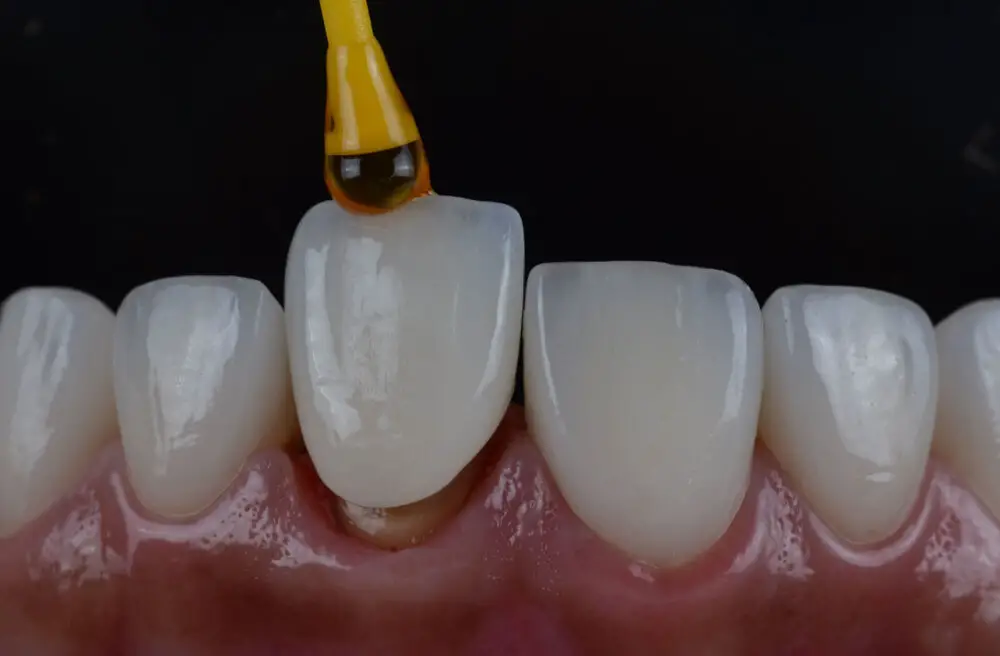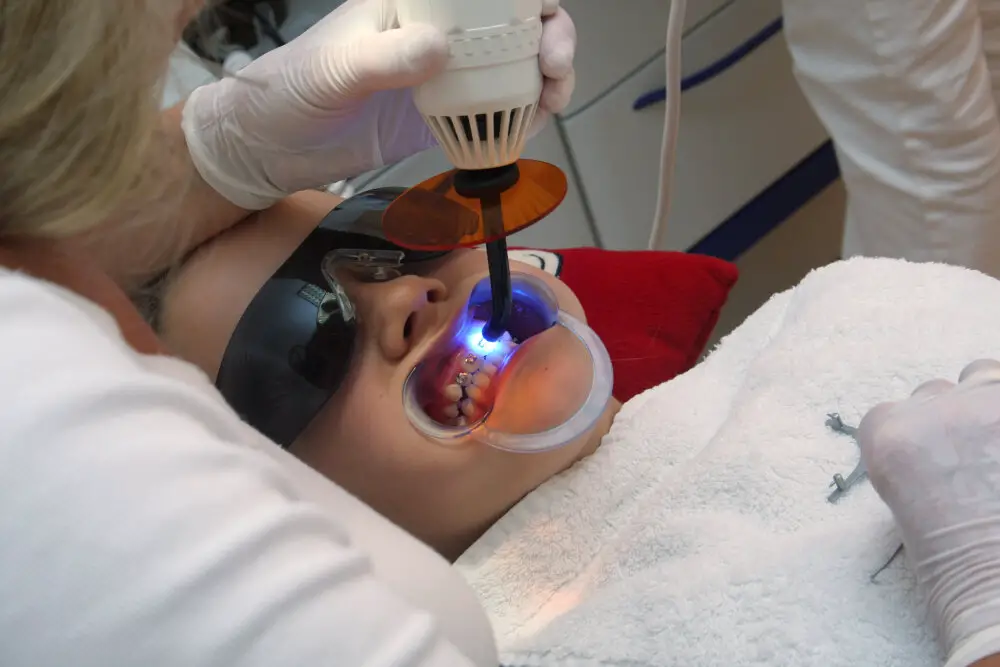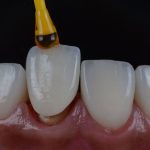How Long Does Numbness Last After Wisdom Teeth Removal?

Wisdom teeth removal is a common surgical procedure that is performed on millions of people every year. Although the procedure is generally safe and straightforward, it can leave the patient with some discomfort and numbness in the mouth. The numbness is usually a result of the local anesthesia that is administered during the procedure, and it can last for several hours or even days after the surgery. However, many patients are concerned about how long the numbness will last and what they can do to alleviate the discomfort. The duration of numbness after wisdom teeth removal varies from person to person and depends on several factors. The type of anesthesia used during the procedure, the number of teeth removed, and the patient’s overall health can all affect how long the numbness lasts. In some cases, the numbness may only last for a few hours, while in others, it can last for several days. It is essential for patients to understand the potential risks and complications associated with wisdom teeth removal and to follow their dentist’s instructions for postoperative care to ensure a smooth recovery.
Wisdom teeth removal is a common dental procedure that involves the extraction of one or more third molars located at the back of the mouth. It is usually done to prevent potential dental problems such as overcrowding, impaction, infection, and decay. While the procedure itself is relatively straightforward, there are potential complications that can arise, including infection, bleeding, nerve damage, dry socket, and prolonged numbness. In some cases, patients may experience temporary or permanent nerve damage, which can cause numbness, tingling, or a loss of sensation in the tongue, lips, or cheeks. It is important to follow post-operative instructions carefully and to report any unusual symptoms or complications to your dentist or oral surgeon.
Factors Affecting Numbness Duration

Numbness after wisdom teeth removal can last for several hours, and sometimes even for a few days. This is because the procedure involves administering local anesthesia, which blocks the nerves in the area. The duration of numbness can vary depending on several factors. One of the most significant factors that affect numbness duration is the type of anesthesia used. The most common type of anesthesia used during wisdom teeth removal is lidocaine, which typically lasts for around 2-3 hours. However, some dentists may use a longer-lasting anesthetic, such as bupivacaine, which can last for up to 8 hours. Another factor that can affect numbness duration is the individual’s metabolism. People with a faster metabolism may process the anesthetic more quickly, leading to a shorter duration of numbness. Age can also be a factor, as older individuals may have a slower metabolism, which can prolong the numbness. Furthermore, the complexity of the extraction can also impact the duration of numbness. If the procedure was more complicated, it may have involved more anesthesia, which can lead to a longer duration of numbness. Ultimately, the duration of numbness can vary from person to person, and it is essential to follow the dentist’s post-operative instructions to ensure a smooth recovery.
During the wisdom teeth extraction procedure, it is possible for nerve damage to occur in the mouth, jaw, or face. This happens when the nerves that control sensation and movement of the muscles are compressed, stretched, or severed during the surgery. The severity and location of the damage will determine the extent of numbness felt by the patient after the procedure. In some cases, the numbness can be temporary and resolve on its own within a few days or weeks. However, in more severe cases, the numbness can be permanent and require further treatment. It’s important for patients to discuss any concerns they have about nerve damage with their oral surgeon before the procedure to minimize the risk of complications.
There are several individual factors that can impact the duration of numbness after wisdom teeth removal. Firstly, age can play a role as older individuals may experience longer periods of numbness due to decreased blood flow and slower healing. Secondly, medication use can affect numbness duration, as certain pain relievers and anesthesia can cause prolonged numbness. Additionally, smoking can be a contributing factor as it can impair blood flow and delay healing time. It is important to discuss these individual factors with your dentist or oral surgeon to ensure proper management and understanding of the numbness duration after wisdom teeth removal.
Typical Numbness Duration

Numbness is a common side effect of wisdom teeth removal. The duration of numbness can vary depending on the individual and the extent of the procedure. Typically, numbness lasts for a few hours to a few days after the surgery. In some cases, the numbness can last for up to a week or two. However, if the numbness persists for longer than two weeks, it is important to contact the dental surgeon for further evaluation. The numbness is caused by the local anesthetic used during the surgery. The anesthetic works by blocking the nerves in the area, which can cause temporary loss of sensation. As the anesthetic wears off, the sensation in the area will gradually return. It is important to avoid touching or chewing on the numb area to prevent injuring the tissue. Additionally, following the post-operative instructions provided by the dental surgeon can help to reduce the duration of the numbness and promote healing.
After wisdom teeth removal, numbness is a common occurrence due to the local anesthesia administered during the procedure. The timeline for numbness following wisdom teeth removal varies depending on the individual’s anatomy and the extent of the surgery. Typically, the numbness starts to wear off within a few hours to a day after the procedure. However, in some cases, the numbness can last up to several weeks or even months. This prolonged numbness is usually due to nerve damage during the surgery, and it is essential to seek medical attention if it persists for an extended period. In most cases, the numbness will gradually subside, and full sensation will return to the affected area within a few weeks. It is vital to follow the post-operative instructions provided by the dentist to ensure proper healing and minimize the risk of complications.
The healing process after wisdom teeth removal can be a bit uncomfortable, but it is crucial to follow the aftercare instructions provided by the dentist. The first few days after the surgery, there may be some swelling and pain in the affected area. This can be managed with pain medication and ice packs. Numbness in the mouth and lips is also common and can last for a few hours or even a few days. It is essential to avoid smoking, using a straw, or eating hard or crunchy foods during the healing process. The stitches used during the procedure will dissolve over time, but it is still important to rinse the mouth gently with saltwater to prevent infection. It may take up to two weeks to fully recover from wisdom teeth removal, but with proper care and rest, the healing process should go smoothly.
Prolonged Numbness and Treatment Options

Prolonged numbness after wisdom teeth removal is a common concern among patients. This numbness, which is caused by nerve damage during the procedure, can last for several days or even weeks. However, in rare cases, the numbness can persist for months or even years. If you are experiencing prolonged numbness after wisdom teeth removal, it is important to consult your dentist or oral surgeon to determine the cause and discuss treatment options. Treatment options for prolonged numbness after wisdom teeth removal vary depending on the severity of the nerve damage. In mild cases, the numbness may resolve on its own over time. However, in more severe cases, surgery or medication may be necessary to repair the damaged nerve. Your dentist or oral surgeon may also recommend physical therapy or other forms of therapy to help restore sensation to the affected area. It is important to follow your dentist or oral surgeon’s recommendations and to keep them informed of any changes in your condition. With proper care and treatment, most cases of prolonged numbness after wisdom teeth removal can be resolved.
Prolonged numbness after wisdom teeth removal can be caused by various factors. One of the primary reasons is damage to the nerves that run through the jawbone, which can occur during the extraction process. In some cases, the nerve can be compressed, causing numbness that can last for several weeks or even months. Additionally, swelling and inflammation around the surgical site can also put pressure on the nerves, leading to prolonged numbness. Finally, certain medications used during the procedure, such as local anesthetics, can also cause numbness that lasts longer than usual. It is essential to consult with a dental professional if numbness persists for an extended period to determine the underlying cause and receive appropriate treatment.
If you experience prolonged numbness after wisdom teeth removal surgery, there are various treatment options available to help alleviate your symptoms. One of the most common treatments is medication, such as painkillers or anti-inflammatory drugs, which can help reduce inflammation and relieve pain. Physical therapy may also be recommended to help improve blood flow to the affected area and promote healing. In more severe cases, surgery may be necessary to address any underlying nerve damage or other issues causing the prolonged numbness. It is important to discuss all treatment options with your healthcare provider to determine the best course of action for your specific needs.
Prevention of Nerve Damage During Wisdom Teeth Removal

Prevention of nerve damage during wisdom teeth removal is essential to avoid long-term numbness or tingling in the face, tongue, or lips. Dental professionals use various techniques to minimize the risk of nerve injury, such as using high-resolution imaging to assess the position of the teeth and nerves before the procedure. They may also use specialized instruments to separate the tooth from the underlying nerve tissue carefully. Additionally, they may administer local anesthesia or sedation to help reduce discomfort and minimize the risk of involuntary movements during the surgery. Another crucial factor in preventing nerve damage is the experience and skill of the dental professional performing the procedure. A highly trained and experienced oral surgeon is more likely to perform the surgery safely and effectively, minimizing the risk of complications such as nerve damage. Patients should also follow any pre-operative instructions carefully, such as avoiding certain foods or medications that may increase bleeding or interfere with anesthesia. By taking these steps, patients can help ensure that the wisdom teeth extraction process is as safe and comfortable as possible, with minimal risk of nerve damage or other complications.
When it comes to wisdom teeth removal, nerve damage is a potential risk that patients should be aware of. To prevent nerve damage during the procedure, it is important to choose an experienced and skilled oral surgeon. Additionally, using 3D imaging technology can help the surgeon better visualize the location of the nerves and avoid damaging them. Patients can also reduce the risk of nerve damage by following pre-operative instructions carefully, such as avoiding alcohol and smoking, and notifying the surgeon of any medical conditions or medications that could increase the risk. Lastly, during the recovery period, patients should be careful not to chew on the affected area, as this can cause further damage to the nerves. By taking these steps, patients can minimize the risk of nerve damage and ensure a successful and pain-free recovery.
Choosing a qualified oral surgeon is crucial to ensure a smooth and successful wisdom teeth removal procedure. Firstly, it is important to check the surgeon’s credentials and qualifications, including their education, training, and board certification. It is also recommended to read reviews or ask for referrals from friends or family who have undergone similar procedures. Additionally, the surgeon should be able to provide a detailed explanation of the procedure, including the potential risks and complications. Communication skills and a comforting bedside manner are also important factors to consider when selecting a surgeon. By considering these factors, patients can feel confident in their choice of oral surgeon and increase the likelihood of a successful and comfortable recovery period.
In conclusion, numbness after wisdom teeth extraction is a common occurrence that can last for a few hours to several days. Factors such as the type of anesthesia used, the complexity of the procedure, and individual healing times can affect the duration of numbness. It is essential to follow post-operative instructions carefully, including avoiding hard or crunchy foods, not smoking, and keeping the area clean to avoid infection. Patients should also contact their dentist or oral surgeon if their numbness lasts longer than expected, or if they experience any other concerning symptoms. By taking these steps, patients can help ensure a smooth recovery and minimize the risk of complications.
It is crucial to seek professional medical advice if experiencing prolonged numbness after wisdom teeth removal. Although numbness is a common side effect of dental surgery, it should not last for an extended period. Prolonged numbness could indicate nerve damage, which requires immediate attention from a dental professional. Ignoring this symptom could lead to permanent nerve damage and long-term complications. Seeking medical advice is paramount to ensure a safe and speedy recovery. Patients should not hesitate to contact their dentist or oral surgeon if they experience any abnormal symptoms after wisdom teeth removal, including prolonged numbness.
Conclusion

In conclusion, numbness after wisdom teeth removal is a common and expected side effect of the procedure. The duration of numbness can vary from a few hours to several days, and in rare cases, it can take weeks or even months to subside. While this numbness can be uncomfortable and inconvenient, it is usually temporary and will go away on its own. However, if the numbness persists for an extended period or is accompanied by other symptoms, it is important to consult with your dentist or oral surgeon to rule out any complications. In the meantime, it is essential to follow post-operative instructions carefully and to take any prescribed pain medication as directed to ensure a smooth and comfortable recovery.







